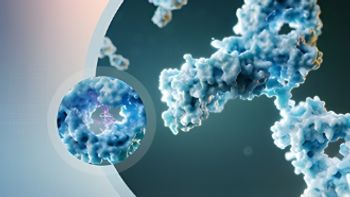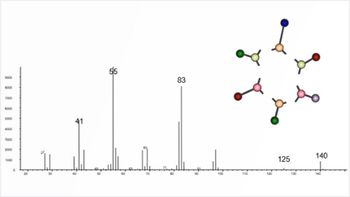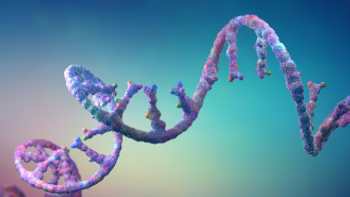
New Study Reveals Promising Biomarkers for Rapid Breast Cancer Diagnosis Using Mass Spectrometry Imaging
Researchers have discovered diacylglycerols as potent biomarkers for the rapid diagnosis of breast cancer, using mass spectrometry imaging. This breakthrough study offers new possibilities for improved intraoperative assessment and personalized treatment strategies.
In a pioneering study published in Analytical Chemistry, researchers from Sri Venkateswara Institute of Medical Sciences and the Indian Institute of Science Education and Research have made significant progress in the field of breast cancer diagnosis (1). By utilizing a cutting-edge technique called desorption electrospray ionization mass spectrometry imaging (DESI-MSI), they have identified diacylglycerols as potent biomarkers for the rapid detection of breast cancer. This breakthrough discovery holds the potential to revolutionize the intraoperative assessment of breast cancer margin status, ultimately reducing the need for additional surgeries.
DESI-MSI enables the direct analysis and imaging of molecules on the surface of a sample. It involves the use of a high-energy spray of charged solvent droplets that desorb and ionize molecules from the sample, which are then transferred into a mass spectrometer for analysis. The imaging aspect of DESI-MSI allows for the spatial distribution of molecules to be mapped, providing valuable information about their localization within a sample. This technique offers label-free and rapid analysis of various molecular species, including lipids, metabolites, peptides, and drugs, making it a powerful tool in fields such as biomedical research, pharmaceutical analysis, and forensics. DESI-MSI has been utilized in a wide range of applications, including cancer diagnostics, drug distribution studies, and environmental analysis, contributing to our understanding of molecular composition and spatial distribution in complex samples.
Breast cancer is one of the most common forms of cancer affecting women worldwide. Timely and accurate diagnosis plays a crucial role in determining appropriate treatment strategies and improving patient outcomes. Traditional diagnostic methods often require time-consuming laboratory processes, delaying the availability of results and potentially impacting treatment decisions. However, the latest research offers a promising solution by harnessing the power of mass spectrometry imaging.
The team of scientists conducted DESI-MSI on fresh-frozen excision specimens obtained from 73 breast cancer patients who underwent lumpectomy. By analyzing the molecular composition of cancerous and adjacent normal tissue sections, they discovered a sharp metabolic upregulation of diacylglycerols in breast cancer cells. Diacylglycerols are lipid second messengers that activate protein kinase C, promoting tumor growth.
The researchers identified four specific types of diacylglycerols that exhibited superior performance in distinguishing cancerous tissue from healthy tissue. These diacylglycerols outperformed other lipids previously studied in the context of breast cancer diagnosis. Leveraging a supervised machine learning approach, they constructed a classifier that achieved an impressive overall prediction accuracy of 100% for breast cancer.
Furthermore, the metabolic pathway analysis revealed increased catabolism of phosphatidylcholine, contributing to the overexpression of diacylglycerols in breast cancer. This finding opens up new avenues for understanding the underlying mechanisms of diacylglycerol signaling in breast cancer and paves the way for the development of targeted therapeutic interventions.
The utilization of DESI-MSI in breast cancer diagnosis offers several advantages, including rapid and label-free discrimination of cancerous tissue during surgical procedures. By providing real-time information about margin status, this technique has the potential to reduce the need for repeat surgeries, thus improving patient outcomes and quality of life.
The researchers' groundbreaking represents a significant step forward in the field of breast cancer diagnosis. The identification of diacylglycerols as potent biomarkers holds tremendous promise for the development of innovative diagnostic tools and personalized treatment strategies, ultimately leading to improved patient care in the fight against breast cancer.
Reference
(1) Mondal, S.; Sthanikam, Y.; Kumar, A.; Nandy, A.; Chattopadhyay, S.; Koner, D.; Rukmangadha, N.; Narendra, H.; Banerjee, S. Mass Spectrometry Imaging of Lumpectomy Specimens Deciphers Diacylglycerols as Potent Biomarkers for the Diagnosis of Breast Cancer. Anal. Chem. 2023, 95 (20), 8054–8062. DOI:
Newsletter
Join the global community of analytical scientists who trust LCGC for insights on the latest techniques, trends, and expert solutions in chromatography.




